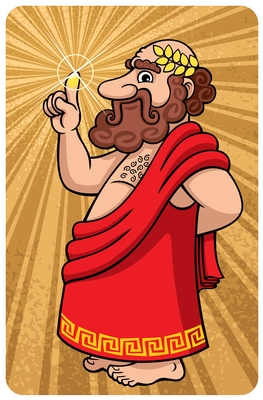Deciphering the Secret Code of Tacit Knowledge

What is it that all human beings share in common other than the need for air, water, and the undeniable fact that they will answer this question in a wide variety of ways? Well, at the risk of disturbing the people likely to answer this question in a wide variety of ways, I would venture to say a deeply ingrained need to know -- a search for the kind of knowledge needed to thrive in this world.
For some of us, this knowledge-seeking impulse revolves around survival -- how to grow food, create shelter, and avoid being eaten by the nearest predator. For others, perhaps those whose survival needs are already met, this knowledge-seeking drive takes the shape of more esoteric knowing -- understanding how the universe works, for example, or how to make a killing in the world of credit default swaps . For others, with more of a spiritual bent, it might take the shape of "knowing God" or "knowing the Self."
Regardless of the knowledge-seeking realm that drives a given individual, all three groups of people share one thing in common -- and that is a thirst to understand something they don't yet understand -- an insight, know-how, or wisdom they believe will add more value to their lives.

If this impulse towards knowing is, indeed, universal, then the question we need to be asking ourselves is: "What is the most effective way to obtain the knowledge we seek?" How do we learn what we don't yet know? And, conversely, how do we know what it is we need to learn?
Traditional knowledge seekers answer this question in fairly predicable ways -- an approach that usually frames the missing knowledge as a commodity that can be secured. "Ask someone who knows", might be one person's approach. Or "read a book" or "take a class" or, more recently,"Google it" -- the common assumption being that our missing knowledge is codified somewhere and can be communicated in a way that is transferable. And while there are definitely benefits to this kind of explicit knowledge transfer, the approach is inherently flawed, given the fact that there are many "things to learn" that cannot be learned this way.
Riding a bicycle, for example, is more easily learned by observing somebody riding a bicycle and then actually getting on a bike and experimenting than it is by reading a book about bike parts or the physics of bike movement. The same holds true for learning a language or kneading dough -- neither of which can be mastered by reading a list of instructions from "experts."
Each of these activities require a transfer of tacit knowledge -- the difficult-to-describe, intuitive, experience-based wisdom from someone "in the know".
It was Michael Polanyi, in 1958, via his magnum opus, Personal Knowledge, who first introduced the concept of "tacit knowledge" to the Western world -- his attempt to communicate that "we know more than we can tell" and that this knowing requires extensive, ongoing, personal contact with people-in-the-know, respect for prelogical knowing, practice, and a healthy dose of trust.
Some years later, Japanese organizational theorist, Ikujiro Nonaka, added his take on the matter, applying the tenets of tacit knowledge to the now growing field of knowledge management.
Whereas science is "know why" and networking is "know who", tacit knowledge is "know how"-- how homo sapiens (the "wise ones") transfer what they know to others in the most elegant, effortless, and effective way possible.
These days, as technology continues to escalate at an exponential rate, markets shift, and employee turnover increases, many forward thinking companies are doing what they can to codify their knowledge, building sophisticated software and knowledge management systems to ensure the ongoing transmission of know how within their enterprise.

And while their attempts are laudable, the fact remains that the transfer of tacit knowledge -- the intuitive, hard to articulate, feeling level knowing that is often the difference, as Mark Twain once explained, between lightning and the lightning bug -- remains extremely difficult to capture.
What does all of this have to do with storytelling? A lot. Because story remains one of the most effective ways human beings have discovered to communicate the essence of what they know and value.
And while it's true that tacit knowledge can never be 100% codified, the fact remains that story is know how's closest surrogate. Indeed, story is how the great Teachers, since the beginning of time, have chosen to communicate their message. If you have any doubts, all you need to do is deconstruct your favorite holy book and you'll soon discover that story (in the form of parable, allegory, and myth) is the main ingredient.
The bottom line? If you want to increase the amount of tacit knowledge transfer in your organization, community, team, or family find a way to go beyond the two-dimensional transfer of explicit knowledge. What follows are simple ways to begin:
1. Conduct interviews with your organization's tacit knowledge keepers
2. Create opportunities for people to observe and/or apprentice with your organization's tacit knowledge keepers
3. Record, distribute, and tell organizational stories that communicate key learning, insight, and wisdom
4. Initiate more hands on action learning (where doing replaces rote learning and intellectualizing.)
"Education is an admirable thing, but it is well to remember, from time to time, that nothing that is worth knowing can be taught." -- Oscar Wilde
Tacit knowledge workshop
Idea Champions
Excerpted from STORYTELLING AT WORK
Post a comment
Thanks for signing in, . Now you can comment. (sign out)
(If you haven't left a comment here before, you may need to be approved by the site owner before your comment will appear. Until then, it won't appear on the entry. Thanks for waiting.)














